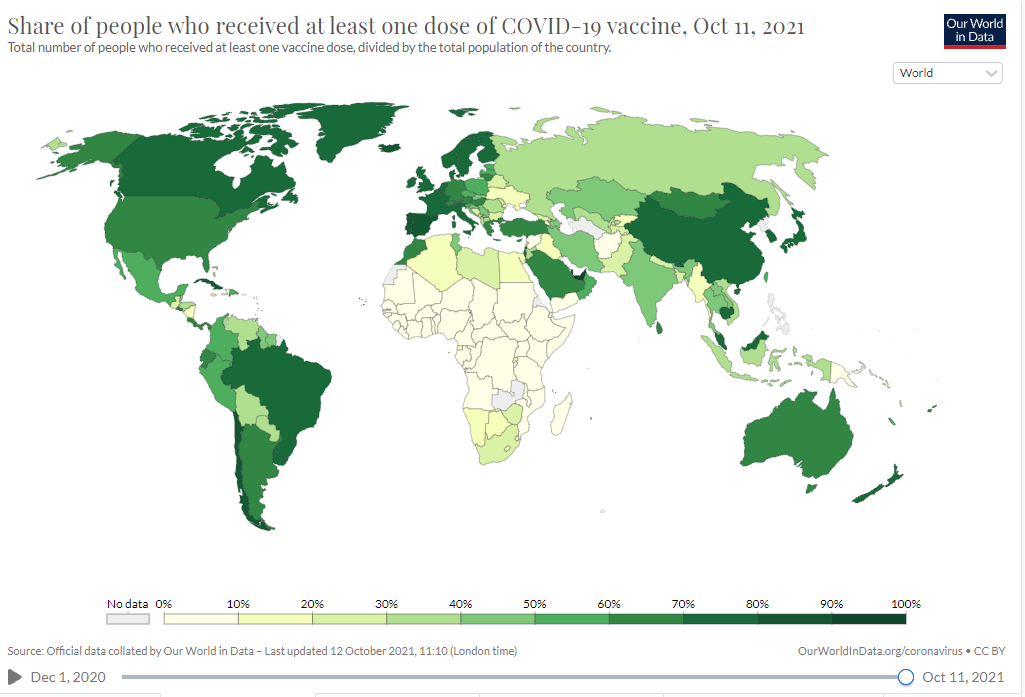 While Australia and other high-income countries are heading to an 80% vaccine coverage, some countries have vaccinated less than 3% of their population.
While Australia and other high-income countries are heading to an 80% vaccine coverage, some countries have vaccinated less than 3% of their population.
COVID-19 vaccine inequity is a major problem in the world today, with many low- and middle-income countries desperately needing COVID-19 vaccines. While many countries have vaccinated over 70% of their population, and are now discussing about a third, booster vaccine to enhanced protection, countries like Haiti have only vaccinated 0.6% of their population. Similar daunting figures are shared by Tanzania, Madagascar, Chad, Yemen and many other countries, where less than 10% of their population has received a COVID-19 vaccine.
 For the interactive version of this map, check this website.
For the interactive version of this map, check this website.
A cry for help
Doctors Without Borders (MSF) calls on the governments of Australia and other high-income countries, like Canada, Denmark, France, Germany, the UK and the US to share their COVID-19 vaccines to save lives.
“It is beyond belief that some countries are sitting on excessive stocks of COVID-19 vaccines while others, including many places where MSF works, are struggling to provide their most vulnerable people with even their first dose,” said Jennifer Tierney, MSF Australia’s Executive Director in a press release.
According to recent data, there is a wide gap in COVID-19 vaccine distribution between high-income countries, where about 60% of their population is vaccinated, compared to low- income countries, where less than 3% of their population has received the jab.
“If Australia and other wealthy countries hope to ever emerge from this pandemic, then global vaccine coverage needs to be increased and in order to do so, we urgently need public and concrete commitments to the steady redistribution of excess COVID-19 vaccines,” Ms Tierney said.
Worst of all, according to MSF, many high-income countries (HIC) are sitting on millions of COVID-19 vaccine doses, which can expire if not distributed in a timely manner. According to the MSF press release, “HICs must redistribute excess doses now, well in advance of their expiry date, and support the receiving countries to overcome logistics and technical constraints to ensure they are delivered”.
Wealth over health?
Part of the problem, according to MSF, is the focus on profits. In its press release, MSF argues that big pharma companies have mostly focused on providing their vaccines to HIC. “Pharmaceutical corporations continue to prioritise sales to the wealthiest countries. Pfizer-BioNTech and Moderna have respectively allocated 78% and 85% of their COVID-19 vaccine deliveries to HICs, and estimate earnings of US$26 billion and $19.2 billion, respectively, in sales from the COVID-19 vaccine in 2021 alone”.
Furthermore, according to MSF, pharma companies have yet to share their technology with the World Health Organization, in order to allow other countries to manufacture their vaccines. “The vaccine inequity that big pharmaceutical companies have created by putting their profits first and supplying wealthy countries before anyone else has cost lives and is nothing short of shameful.” said Ms Tierney.

